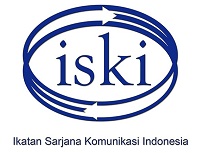“Embarrassing and disgraceful”: technology-facilitated sexual violence and victim’s healing process
Abstract
This study aims to reveal the communication experience of victims of online gender-based violence and the healing process from the trauma they experienced. The main research questions are how victims experience violence online, what motives encourage perpetrators to commit violence from the victim’s perspective, the meaning of the communication experience, and the victim’s process of healing the traumatic experience. In this qualitative study, phenomenological methods and symbolic interaction theory were employed. The research subjects are women victims of online gender-based violence cases. Informants were selected through a purposive sampling technique. The results showed that most cases of threats of spreading intimate photos or videos were experienced by victims when they asked for a breakup or did not follow the wishes of the perpetrator. Victims of violence in the online realm are also vulnerable to multiple layers of violence. The video is used as a tool for the perpetrator so that the victim does not refuse to have sex with the perpetrator. The impact experienced by the victim is psychological loss, social isolation, and limited mobility. The three motives behind the above cases are relational, sextortion or extortion, and unknown motives. The meanings obtained from the communication experience of victims are shame, disgrace, loss of identity, feeling tarnished, and having mistrust of the opposite sex. The victims used various ways to heal themselves from the trauma, namely getting closer to God, telling stories to friends, and consulting psychologists.
Keywords
Full Text:
PDFReferences
Abram, C. (2020). The most urgent threat of deepfakes isn’t politics. It’s porn. https://www.vox.com/2020/6/8/21284005/urgent-threat-deepfakes-politics-porn-kristen-bell
Adkiras, F. (2021). Konstruksi hukum perlindungan korban kekerasan berbasis gender online menurut hukum hak asasi manusia. Jurnal Lex Renaissance, 6(2), 376–390. https://doi.org/10.20885/jlr.vol6.iss2.art12
Antika, R. (2020). Deepfake pornografi: Ketika kekerasan seksual bertransformasi tanpa kendali. https://www.infid.org/news/read/deepfake-pornografi
Araújo, A. V. M. de, Bonfim, C. V. do, Bushatsky, M., & Furtado, B. M. A. (2022). Technology-facilitated sexual violence: A review of virtual violence against women. Research, Society and Development, 11(2), e57811225757. https://doi.org/10.33448/rsd-v11i2.25757
Creswell. (2015). Penelitian kualitatif & desain riset. Yogyakarta: Pustaka Pelajar.
Departemen Kajian Strategis. (2021). Satu tahun pandemi: Meningkatnya kekerasan basis gender online. Lembaga Mahasiswa Psikologi UGM. https://lm.psikologi.ugm.ac.id/2021/03/satu-tahun-pandemi-meningkatnya-kekerasan-basis-gender-online/
Febrianto, P., Puspitasari, A. D., Pritasari, A. C., Fajrin, N. D., Mas’udah, S., & Megasari, L. A. (2022). Sexual violence and the healing process of the victims. Jurnal Sosiologi Dialektika, 17(1), 109–119. https://doi.org/10.20473/jsd.v17i1.2022.109-119
Ferdowsian, H., Kelly, S., Burner, M., Anastario, M., Gohlke, G., Mishori, R., McHale, T., & Naimer, K. (2018). Attitudes toward sexual violence survivors: Differences across professional sectors in Kenya and the Democratic Republic of the Congo. Journal of Interpersonal Violence, 33(24), 3732–3748. https://doi.org/10.1177/0886260516639257
Handaningtias, U. R., & Agustina, H. (2017). Peristiwa komunikasi dalam pembentukan konsep diri otaku anime. Jurnal Kajian Komunikasi, 5(2), 202–209. https://doi.org/10.24198/jkk.v5i2.11405
Henry, N., & Powell, A. (2015). Beyond the ‘sext’: Technology-facilitated sexual violence and harassment against adult women. Australian and New Zealand Journal of Criminology, 48(1), 104–118. https://doi.org/10.1177/0004865814524218
Henry, N., & Powell, A. (2018). Technology-facilitated sexual violence: A literature review of empirical research. Trauma, Violence, & Abuse, 19(2), 195–208. https://doi.org/10.1177/1524838016650189
Kasita, I. D. (2022). Deepfake pornografi: Tren kekerasan gender berbasis online (KGBO) di era pandemi COVID-19. Jurnal Wanita Dan Keluarga, 3(1), 16–26. https://doi.org/10.22146/jwk.5202
Komnas Perempuan. (2022). CATAHU 2022: Catatan tahunan kekerasan terhadap perempuan tahun 2021.
Kuswarno, E. (2013). Metodologi penelitian komunikasi fenomenologi: Konsep, pedoman, dan contoh penelitiannya. Bandung: Widya Padjadjaran.
Maddocks, S. (2020). ‘A deepfake porn plot intended to silence me’: Exploring continuities between pornographic and ‘political’ deep fakes. Porn Studies, 7(4), 415–423. https://doi.org/10.1080/23268743.2020.1757499
Maryani, E., & Astari, S. (2019). Selebriti dalam digital activism tentang kekerasan terhadap perempuan di Youtube. Jurnal Manajemen Komunikasi, 3(1), 1. https://doi.org/10.24198/jmk.v3i1.20656
Mulyana. (2020). Metodologi penelitian kualitatif paradigma baru ilmu komunikasi dan ilmu sosial lainnya. Bandung: Remaja Rosdakarya
Naezer, M., & van Oosterhout, L. (2021). Only sluts love sexting: Youth, sexual norms and non-consensual sharing of digital sexual images. Journal of Gender Studies, 30(1), 79–90. https://doi.org/10.1080/09589236.2020.1799767
Öhman, C. (2020). Introducing the pervert’s dilemma: A contribution to the critique of deepfake pornography. Ethics and Information Technology, 22(2), 133–140. https://doi.org/10.1007/s10676-019-09522-1
Pasinringi, T. (2020). Riset: 56 persen pelaku KBGO adalah orang terdekat. https://magdalene.co/story/riset-56-persen-pelaku-kbgo-adalah-orang-terdekat
Powell, A., & Henry, N. (2019). Technology-facilitated sexual violence victimization: Results from an online survey of Australian adults. Journal of Interpersonal Violence, 34(17), 3637–3665. https://doi.org/10.1177/0886260516672055
Putera, D. P. A. D. (2019). 6 alasan tak perlu takut konsultasi ke psikolog, jangan ragu-ragu! https://www.idntimes.com/life/inspiration/dewa-putu-ardita/alasan-tak-perlu-takut-konsultasi-ke-psikolog?page=all
Ramadhani, C. (2022). Mengenal tonic immobility, kondisi kelumpuhan sementara yang dialami korban pelecehan seksual. https://www.beautynesia.id/wellness/mengenal-tonic-immobility-kondisi-kelumpuhan-sementara-yang-dialami-korban-pelecehan-seksual/b-249656
Reed, L. A., Ward, L. M., Tolman, R. M., Lippman, J. R., & Seabrook, R. C. (2021). The association between stereotypical dender and dating beliefs and digital dating abuse perpetration in adolescent dating relationships. Journal of Interpersonal Violence, 36(9–10), NP5561–NP5585. https://doi.org/10.1177/0886260518801933
Risti, A. N., Hadisiwi, P., & Prihandini, P. (2022). Pengalaman komunikasi mahasiswi bercadar dalam menghadapi stigma masyarakat. Jurnal Manajemen Komunikasi, 6(2), 221. https://doi.org/10.24198/jmk.v6i2.32106
SAFEnet. (2019). Memahami dan menyikapi kekerasan berbasis gender online.
SAFEnet. (2022). Laporan situasi hak-hak digital Indonesia 2021: Pandemi memang terkendali tapi represi digital terus berlanjut.
Snaychuk, L. A., & O’Neill, M. L. (2020). Technology-facilitated sexual violence: Prevalence, risk, and resiliency in undergraduate students. Journal of Aggression, Maltreatment & Trauma, 29(8), 984–999. https://doi.org/10.1080/10926771.2019.1710636
Sugiyanto, O. (2021). Perempuan dan revenge porn: Konstruksi sosial terhadap perempuan indonesia dari preskpektif viktimologi. Jurnal Wanita Dan Keluarga, 2(1), 22–31. https://doi.org/10.22146/jwk.2240
Telaumbanua, M. (2020). Sadar gak sih? Ini 5 dampak negatif akibat kamu terlalu bucin. https://www.idntimes.com/life/relationship/martha-telaumbanua/dampak-negatif-bucin-c1c2
Utamidewi, W., Mulyana, D., & Rizal, E. (2017). Pengalaman komunikasi keluarga pada mantan buruh migran perempuan. Jurnal Kajian Komunikasi, 5(1), 69. https://doi.org/10.24198/jkk.v5i1.7901
WHO. (2017). A manual for health managers. http://www.who.int/reproductivehealth/publications/violence/vaw-health-systems-manual/en/
Wirman, W., Sari, G. G., Hardianti, F., & Roberto, T. P. (2021). Dimensi konsep diri korban cyber sexual harassment di Kota Pekanbaru. Jurnal Kajian Komunikasi, 9(1), 79. https://doi.org/10.24198/jkk.v9i1.27363
Zhong, L. R., Kebbell, M. R., & Webster, J. L. (2020). An exploratory study of technology-facilitated sexual violence in online romantic interactions: Can the Internet’s toxic disinhibition exacerbate sexual aggression? Computers in Human Behavior, 108(April 2019), 106314. https://doi.org/10.1016/j.chb.2020.106314
DOI: https://doi.org/10.24198/jkk.v10i2.42265
Refbacks
- There are currently no refbacks.
Copyright (c) 2022 Gita Anita, Deddy Mulyana, Nindi Aristi

This work is licensed under a Creative Commons Attribution-NonCommercial-ShareAlike 4.0 International License.
Jurnal Kajian Komunikasi Indexed by:
Editorial Office of Jurnal Kajian Komunikasi:
Faculty of Communication Science, Universitas Padjadjaran
Jl. Raya Bandung-Sumedang Km. 21 Jatinangor, Sumedang 45363, Indonesia
WA: +6282316731181 (Chat Only)
Telephone: +62227796954
Faxmile: +62227794122
E-mail: jurnal.kajian.komunikasi@unpad.ac.id
Jurnal Kajian Komunikasi Supervised by:










